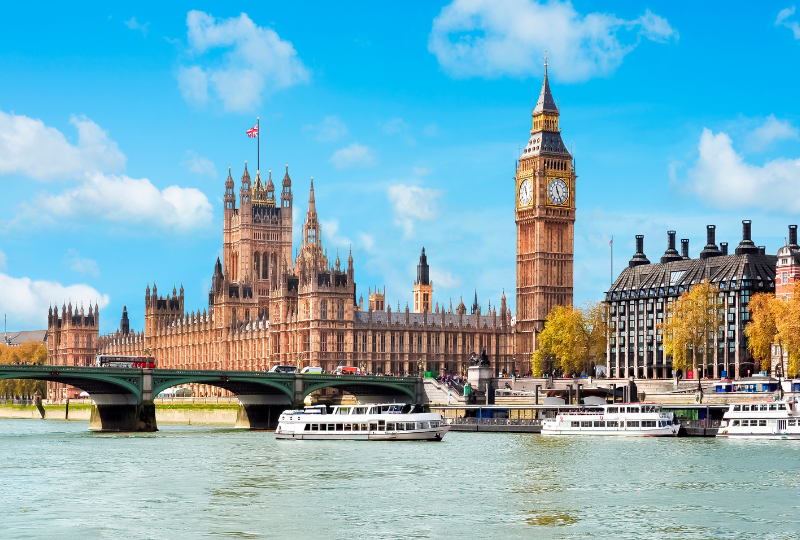Study in the UK – Your Trusted Guide to Higher Education
Explore the rich educational heritage of the UK with us. The UK is home to prestigious institutions like Oxford, Cambridge, and more, offering diverse study programs and a unique cultural experience. Benefit from shorter degree durations, extensive university listings, application expertise, visa guidance, accommodation support, and scholarship information. Choose us as your trusted guide to UK university and college admissions and embark on a world-class educational journey.
Living expenses in the UK can vary depending on your location and lifestyle. Here are some approximate costs to consider:
- Accommodation:
- On-campus university housing: £4,000 – £9,000 per academic year.
- Private rented accommodation: £6,000 – £12,000 per year (varies by city and type).
- Food:
- Groceries: £40 – £60 per week.
- Dining out: £10 – £20 per meal.
- Transportation:
- Public transportation: £60 – £150 per month (varies by city).
- Bicycle: £100 – £300 (one-time purchase).
- Healthcare:
- National Health Service (NHS) coverage is usually provided for students, but additional health insurance may be required, costing approximately £150 – £300 per year.
- Books and Supplies:
- Textbooks and course materials: £200 – £400 per year.
- Personal Expenses:
- Clothing, toiletries, and other personal items: £40 – £60 per month.
- Entertainment and leisure activities: £50 – £100 per month.
- Miscellaneous Expenses:
- Phone bills, internet, and utilities: £30 – £50 per month.
General Requirements for Academic Bachelor’s Degrees in the UK:
- Completion of secondary education or its equivalent (e.g., A-levels or International Baccalaureate).
- English language proficiency (e.g., IELTS or TOEFL for international students).
- UCAS application (Universities and Colleges Admissions Service).
Academic Requirements for Bachelor’s Degree Programs in the UK:
- High School Qualifications: You’ll typically need to have completed your secondary education or equivalent qualifications. For international students, this may include A-levels, International Baccalaureate (IB), or other recognized qualifications.
- English Language Proficiency: Since English is the primary language of instruction, you may need to demonstrate your English proficiency through standardized tests like IELTS, TOEFL, or equivalent qualifications. Requirements can vary, but a common minimum IELTS score is 6.0 to 7.0.
- UCAS Application: Most undergraduate applications go through the UCAS (Universities and Colleges Admissions Service) system. You’ll need to create a UCAS application, select your desired courses, and provide your academic qualifications.
General Requirements for Academic Master’s Degrees in the UK:
- A relevant bachelor’s degree from an accredited institution.
- Minimum GPA and relevant coursework (varies by program).
- English language proficiency (e.g., IELTS or TOEFL for international students).
- Personal statement outlining your academic and career goals.
- Letters of recommendation.
- Some programs may require standardized tests like the GRE or GMAT.
Academic Requirements for Master’s Degree Programs in the UK:
- Relevant Bachelor’s Degree: You should have a relevant bachelor’s degree from an accredited institution. The specific requirements and minimum GPA can vary by program, but a typical minimum GPA might be around 3.0 on a 4.0 scale.
- English Language Proficiency: International students will likely need to provide proof of English proficiency through tests like IELTS or TOEFL. A common requirement is an IELTS score of 6.5 to 7.0.
- Personal Statement: Prepare a personal statement outlining your academic and career goals, explaining why you want to pursue the specific master’s program.
- Letters of Recommendation: Some programs may require letters of recommendation from academic or professional sources.
- Standardized Tests: Depending on the program, you may need to take standardized tests such as the GRE or GMAT. Check the specific requirements for your chosen course.
General Requirements for Academic Ph.D Degrees in the UK:
- A relevant master’s degree or a bachelor’s degree with outstanding qualifications.
- Research proposal outlining your intended research project.
- Strong academic background with high GPA.
- English language proficiency (e.g., IELTS or TOEFL for international students).
- Letters of recommendation.
- Interviews may be required for some programs.
Academic Requirements for Ph.D Degree Programs in the UK:
- Relevant Master’s Degree or Equivalent: To pursue a Ph.D., you typically need a relevant master’s degree. In some cases, exceptional candidates with a bachelor’s degree and outstanding qualifications may be considered.
- Research Proposal: You’ll need to prepare a detailed research proposal outlining your intended research project.
- Strong Academic Background: A high level of academic achievement, often with a minimum GPA requirement, is expected.
- English Language Proficiency: International students usually need to demonstrate English proficiency through tests like IELTS or TOEFL. The required score can vary.
- Letters of Recommendation: You’ll typically need letters of recommendation from academic or professional sources.
- Interviews: Some Ph.D. programs may require interviews as part of the application process.

